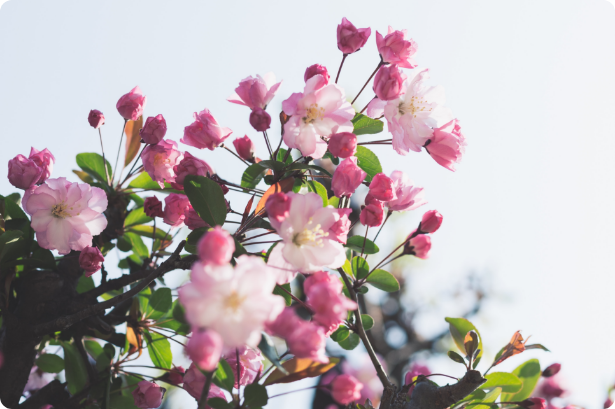About Budburst
Budburst brings together researchers, horticulturists, and community scientists on a shared journey to uncover the stories of plants affected by human impacts on the environment. Budburst tells these stories through data collection, data sharing, education, and personal connections.
What We Do
Budburst community scientists work together with research scientists, educators, and horticulturists to answer specific, timely, and critical ecological research questions by making careful observations of the timing of plant life cycle events, also called phenophases. These life events differ depending upon the type of plant, but usually include leafing, flowering, and fruiting phases of plants as well as leaf color and senescence.
Spring, summer, fall, and winter phases are all valuable. These observations are used to better understand how plant species and ecosystems respond to changes in climate locally, regionally, and nationally. Our projects and campaigns reflect the many ecological questions and issues raised by the ways humans impact the environment and how plants respond to those changes.
As a Budburst community scientist, you may invest as much or as little time as you like. You may observe and report on one or more plants over one season or over many years, or report on one plant observed for one day. All data contributions are valuable.
Our Roots
Budburst began in 2007 as Project BudBurst in response to requests from people like you who wanted to make a meaningful contribution to understanding changes in our environment. Since then, close to 16,000 people from all 50 states have participated.
Previously hosted by the University Corporation for Atmospheric Research (UCAR) and the National Ecological Observatory Network (NEON), Budburst moved to the Chicago Botanic Garden in 2017.
Budburst is open to people of all ages and abilities. There is no cost to participate and no special training required. Our participants include individuals as well as groups from schools and universities to gardening clubs and volunteer organizations. If you’re interested in participating, we have a place for you in our community.

Do you have a Budburst-related research question?
The greater Budburst community is here to help. We would like to know what data you think would be useful and how you would like to use it.